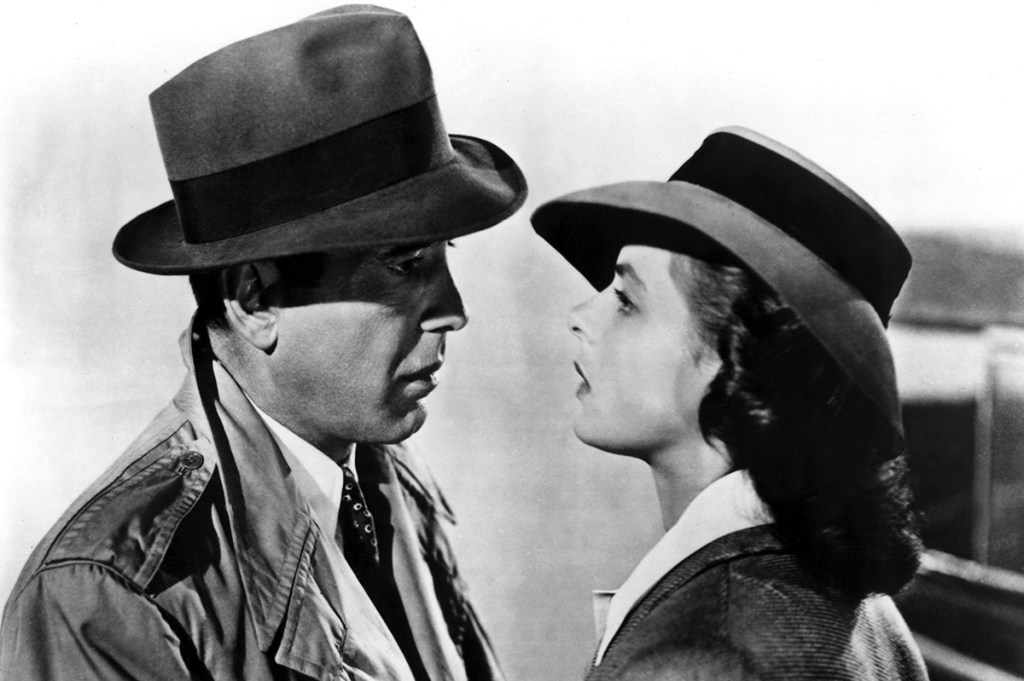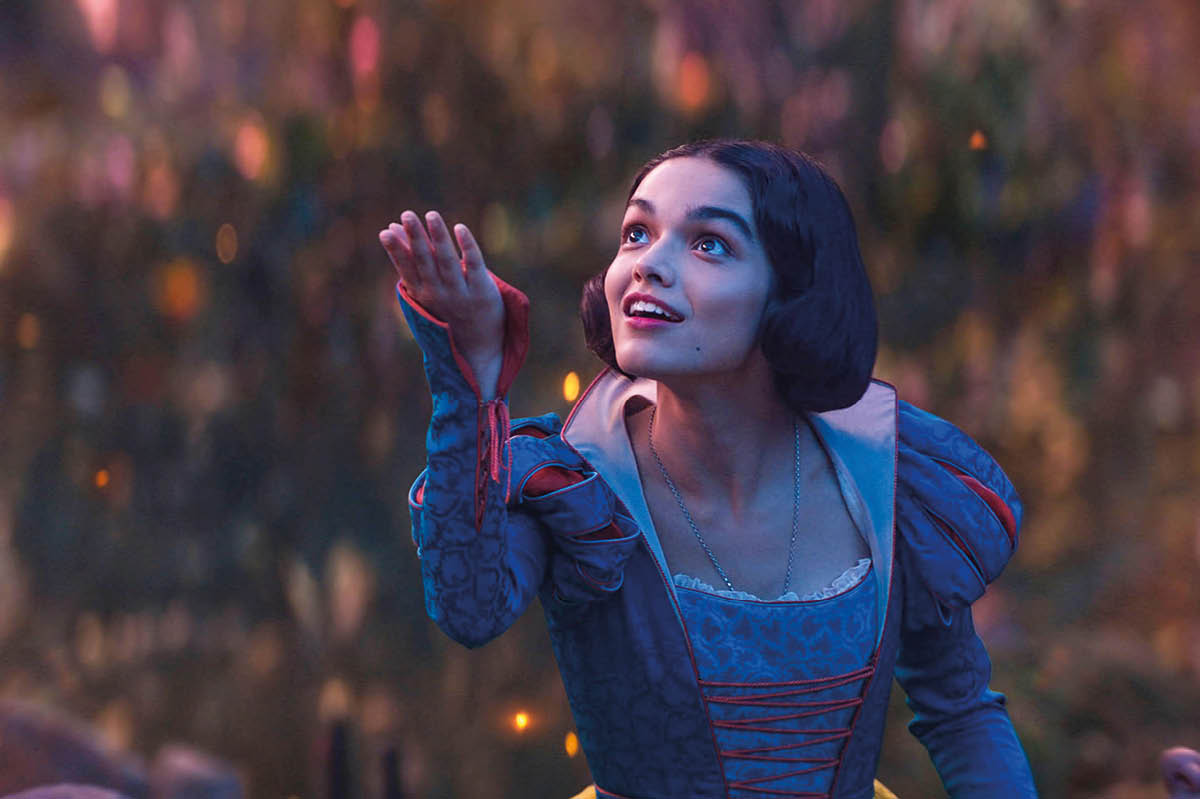In considering what makes a masterpiece of film, the critical community has its shortlist of highly artistic favorites: Citizen Kane, Vertigo, Battleship Potemkin, the like. But in the hearts and minds of average moviegoers, another kind of picture has come to encapsulate “the big screen”: one with less aesthetic ambition, perhaps, but an exceptional dose of romance and style.
For this set, Casablanca remains something like the main attraction. Eighty years ago this November, Warner Bros. debuted director Michael Curtiz’s World War Two romance starring Humphrey Bogart as Rick Blaine, the impresario and namesake of a nightclub in Casablanca, Rick’s Café Américain, who arrives at his signature state of jaded stoicism thanks to his perceived abandonment by a woman with whom he had a romance in Paris — Ilsa Lund (Ingrid Bergman) — and the assorted chicanery and corruption he witnesses in this Moroccan city, a landing spot for Europe’s refugees wishing to make it to America.
It’s become almost de rigueur to restate Casablanca’s humble origin story — the film was based on an unproduced play, Everybody Comes to Rick’s — but the public and the cognoscenti pretty quickly realized they had something special. Upon entering wide release in 1943, Casablanca was a respectable draw at the box office, but when the Oscars rolled around, the film was nominated for eight and won three, including Best Picture, Best Director for Curtiz, and Best Screenplay for Julius J. Epstein, Philip G. Epstein and Howard Koch. This isn’t the sort of reception given to a sleeper hit but a film that has been fully embraced — as it continues to be.
So why does Casablanca resonate with moviegoers? Certainly, the film’s World War Two setting gave oomph to what would have been, in a non-wartime context, a standard-issue love triangle. With the arrival of Ilsa and her husband, Resistance hero Victor Laszlo (Paul Henreid), in Casablanca, Rick has a genuine moral quandary. Will Rick pass along letters of transit to Ilsa and Victor, enabling them to continue their journey to Lisbon and then to America, but also preempting any renewal of Rick’s relationship with Ilsa? This act would seemingly require more self-sacrifice than might be expected of a character who proudly insists, “I stick my neck out for nobody.” That Rick can see past his love for Ilsa (“It doesn’t take much to see that the problems of three little people don’t amount to a hill of beans in this crazy world,” he says at the end) to assure Ilsa and Victor’s well-being does not make the character a gallant do-gooder but a man firmly in the Bogart mold: tough, fair and grudgingly — but never gratingly — honorable.
Rick’s uncomplaining coolness may seem too good to be true, but that’s part of the film’s appeal. Despite its urgent contemporary setting, 1940s audiences understood that Casablanca offered a dream vision of war and romance — a studio-bound sketch of outsize heroes, grand gestures (remember the scene in which Rick, with a nod, permits the singing of “La Marseillaise” in the presence of German officers at the nightclub), and personal dramas set against the passing parade. The film conjures a world cozy enough to want to live in: Rick’s Café Américain is the gin joint of our dreams — an intimate spot whose chiaroscuro lighting illuminates cigarette smoke and where dialogue is underscored by twinkling piano music. The famous finale, in which Rick and Ilsa have their fare-thee-well at an airport runway, is a fog-filled fantasia. Curtiz excites little recognition as an auteur, but watch how his camera saunters into the nightclub with as much authority as Scorsese’s in the Copacabana scene in Goodfellas.
Above all, then, Casablanca is a peerless illustration of Hollywood high style, exemplified in countless little details: the angle of Bergman’s hat, the crisp whiteness of Bogart’s dinner jacket, the intensity of the way in which the two ponder each other in dramatic close-ups and the dreamy way the piano player Sam (Dooley Wilson) sings “As Time Goes By” — the song that signified Rick and Ilsa’s love for each other so long ago — after Ilsa insists (pace the common quote), “Sing it, Sam.”
So what if it’s not as weighty as Citizen Kane? Just as God rested on the seventh day, the great god of cinema, after giving us Griffith and Eisenstein, rested on the seventh day and gave us a movie whose glamour, flair and sophistication will always be inseparable from the art form itself.
This article was originally published in The Spectator’s November 2022 World edition.

























